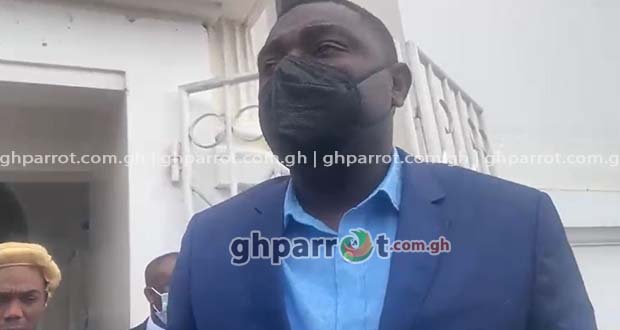Kevin Taylor Wins as 5-Year Court Warrant Quashed

In a landmark decision that could have far-reaching implications for media freedom and judicial transparency in Ghana, the Supreme Court has quashed the 2020 bench warrant for the arrest of outspoken US-based Ghanaian journalist Kevin Taylor.
Taylor, known for his controversial political commentary on his online show With All Due Respect, has been a vocal critic of the government and Ghana’s judiciary.
ALSO READ: Port of Virginia: US Customs Intercepts High-Value Stolen Vehicles Bound for Ghana
Background: The Warrant That Sparked International Attention
In January 2020, the Accra High Court presided over by Justice Eric Kyei Baffour issued a bench warrant for Kevin Taylor after he allegedly made scandalous remarks against the judge. The comments were made during the high-profile trial involving former officials of the National Communications Authority (NCA) accused of causing financial loss to the state.
Taylor, in a Facebook live video, suggested that Justice Kyei Baffour was rewarded with promotion due to political loyalty—a claim the court deemed contemptuous.
Supreme Court’s Ruling: A Victory for Due Process
On July 22, 2025, a five-member Supreme Court panel, led by Justice Imoro Amadu Tanko, ruled that the arrest warrant was unlawful and unconstitutional.
According to the court’s majority opinion, Taylor’s right to be heard was violated when the High Court issued the warrant without offering him a proper opportunity to respond to the contempt charges.
The final ruling was 4–1 in favor of Taylor, with Justice Ernest Yao Gaewu as the lone dissenter. The other concurring justices were Senyo Dzamefe, Gbiel Simon Suurbaareh, and Philip Bright Mensah.
Kevin Taylor Reacts
Speaking briefly to reporters outside the courtroom, Taylor expressed relief and vindication.
“This is not just a personal win, this is a win for freedom of expression and for every Ghanaian who believes in justice,” he said.
He also praised the judiciary for what he called a “bold decision” and emphasized that his critiques are always intended to promote accountability, not defamation.
ALSO READ: Ghanaians Outraged at Extra $250 New U.S. Visa Fee
Implications: What This Means for Ghana
This ruling sets a strong precedent in Ghana’s legal landscape. Here’s why it matters:
1. Free Speech vs. Contempt Powers
The decision reignites debate over how courts handle public commentary—especially by journalists and critics abroad. Can a Ghanaian court issue arrest warrants for online speech made overseas? The ruling suggests clear limits to judicial overreach.
2. Natural Justice Reinforced
The court reaffirmed that every individual has the right to be heard before punitive action is taken—even in contempt cases. This protects both citizens and critics from summary punishment without fair trial.
3. Impact on Digital Journalism
As more Ghanaians operate on platforms like YouTube, Facebook, and X (formerly Twitter), the ruling could protect journalists and content creators from facing arbitrary legal actions.
Public Reaction
Reactions across social media were swift and divided. While many praised the court’s decision as a win for democracy, others criticized Taylor’s tone and approach to journalism.
Civil society groups, legal experts, and media watchdogs have largely welcomed the decision, calling it “a step toward legal modernization.”
What Happens Next?
The full written judgment from the Supreme Court is expected in the coming days.
Taylor’s legal team is reportedly considering a petition for legal costs and damages due to reputational harm over the years.
Meanwhile, legal analysts are pushing for reform of Ghana’s contempt laws, especially in cases involving digital content and international boundaries.
The Supreme Court’s decision to quash the arrest warrant of Kevin Taylor is not just a legal victory—it is a defining moment in the evolving relationship between freedom of expression, judicial authority, and digital activism in Ghana.
As Ghana continues to assert itself as a democracy in the digital age, today’s ruling sends a powerful message: Justice must be transparent, proportionate, and rooted in the rule of law.
Stay Connected
For real-time updates, legal analyses, and exclusive interviews with key players in this story, follow GHParrot across all platforms.
ARE YOU UNEMPLOYED? CAN WORK FROM HOME? THEN CLICK HERE TO SIGN UP AND START EARNING






